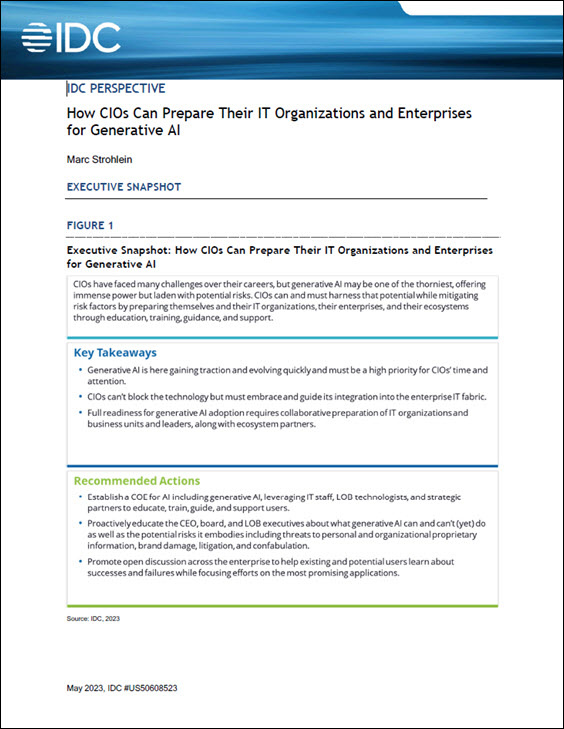 SnapLogic, the unified data and application integration platform as a service (iPaaS), today introduced the Summer 2016 release of its SnapLogic Elastic Integration Platform. The Summer 2016 release brings new additions to SnapLogic’s library of more than 400 intelligent connectors called Snaps, and enhances the core platform with improved performance and new data governance features for hybrid deployments.
SnapLogic, the unified data and application integration platform as a service (iPaaS), today introduced the Summer 2016 release of its SnapLogic Elastic Integration Platform. The Summer 2016 release brings new additions to SnapLogic’s library of more than 400 intelligent connectors called Snaps, and enhances the core platform with improved performance and new data governance features for hybrid deployments.
SnapLogic continues to break down the barriers between data and application integration in the enterprise with a converged platform that is built for self-service,” said Vaikom Krishnan, vice president of engineering at SnapLogic. “The Summer 2016 release further enhances our Snap library and resources for Snap developers to help support our vision of ‘anything, anytime, anywhere’ integration.”
Big Data Integration
The Summer 2016 release introduces several enhancements to SnapLogic’s support for Hadoop- and Spark-based big data integration. These include:
- New Hive Snap: the Snap for the Apache Hive data warehouse automates execution of Data Manipulation Language (DML) and Data Definition Language (DDL) statements for rapid queries on either Cloudera- or Hortonworks-based Hadoop clusters.
- New Teradata Snap: this Snap connects a Teradata database as part of an integrated data pipeline for enhanced business analytics.
- Enhanced encryption for the Hadooplex: this enhancement to the SnapLogic Hadooplex – the data processing engine that is deployed on a Hadoop cluster – allows cloud service and database credentials to be stored and encrypted under the customer’s control without leaving the SnapLogic environment, bringing more flexibility and security to data processing in Hadoop clusters.
Self-Service Data Transformation
Data schemas in enterprise systems-of-record such as SAP, NetSuite or Salesforce can have thousands of elements, making it laborious to map the elements to other systems for integration and data extraction. Building on SnapLogic’s focus on ease of use and self-service, the Summer 2016 release introduces new automated data transformation capabilities that take an expression from a source system, evaluate and “map” it to the target system with minimal manual intervention as part of an integrated data flow pipeline. The improved Mapper Snap makes it faster and simpler to search, filter and map the thousands of entries in a complex schema tree.
+400 Intelligent Connectors
In addition to the new big data integration Snaps, the Summer 2016 release brings a variety of updates and improvements to the library of 400+ pre-built Snaps, including:
- Enhancements to the Snap for the Anaplan project planning platform: this Snap has been enhanced to support handling of input errors to aid in data governance.
- Updated Tableau Snap: this Snap lets users write, format and extract data from the current version of Tableau for advanced business analytics.
- Updates to Snaps for Google BigQuery, Google Analytics, and NetSuite to improve performance.
According to Gartner: “Compelling iPaaS value propositions include lower entry and IT operation costs, ease of use, self-service via cloudstreams (prepackaged integrations) and greater flexibility than traditional integration middleware. Moreover, an iPaaS consolidates a range of capabilities previously available across multiple, discrete on-premises integration products.”1
Enterprise Governance and Auditability
The Summer 2016 release also adds enhancements to the core SnapLogic iPaaS, including improved performance and new capabilities for administrators for better traceability and auditability. These capabilities include:
- Capturing and logging pipeline parameters: user-defined parameters to be used during pipeline execution can now be logged and retained with runtime history in order for administrators to audit API usage and for developers to quickly debug pipeline performance issues.
- Improved pipeline performance: the Summer 2016 release introduces a seamless way to auto-shard documents across all nodes in a SnapLogic data processing Snaplex, leveraging the power of all nodes and boosting data integration performance. This helps customers to take full advantage of parallel data flow performance, particularly where I/O or CPU are the gating factors.
- Restrict triggered tasks to a single instance execution: triggered integration tasks are invoked when a certain condition is met in the source system in order to automate business processes, such as an integrated quote-to-cash data flow. Now users can limit invocation of triggered tasks to one instance at a time for more granular control and to avoid overloading resources.
- Whitelist IP ranges for cloud triggered executions: platform administrators can now whitelist IP address ranges to restrict triggered tasks to only run on cloud URLs in the specified IP range. This allows invocations to be totally restricted, limited to specific IP addresses or ranges, or totally open for more granular control and governance.
New Resource for Snap Developers
SnapLogic Snaps are modular components for a particular data source or application, designed to abstract the complexity of the underlying system to make it simple to create integrations. In addition to the ever-expanding library of pre-built Snaps, SnapLogic also makes it easy for customers and partners to build custom Snaps using a standard developer IDE. New with the Summer 2016 release is a resource for Snap developers with detailed explanations, screenshots, and code samples. The dynamic, mobile-friendly site http://developer.snaplogic.com/ is designed both to inform and encourage contributions from SnapLogic’s growing developer community.
Availability
All customers have been updated to the SnapLogic Elastic Integration Platform Summer 2016 Release. For more information, visit www.snaplogic.com/summer2016
1 Gartner: “Hype Cycle for Cloud Computing, 2016” by Ed Anderson, David Mitchell Smith, August 3, 2016.
Sign up for the free insideAI News newsletter.




